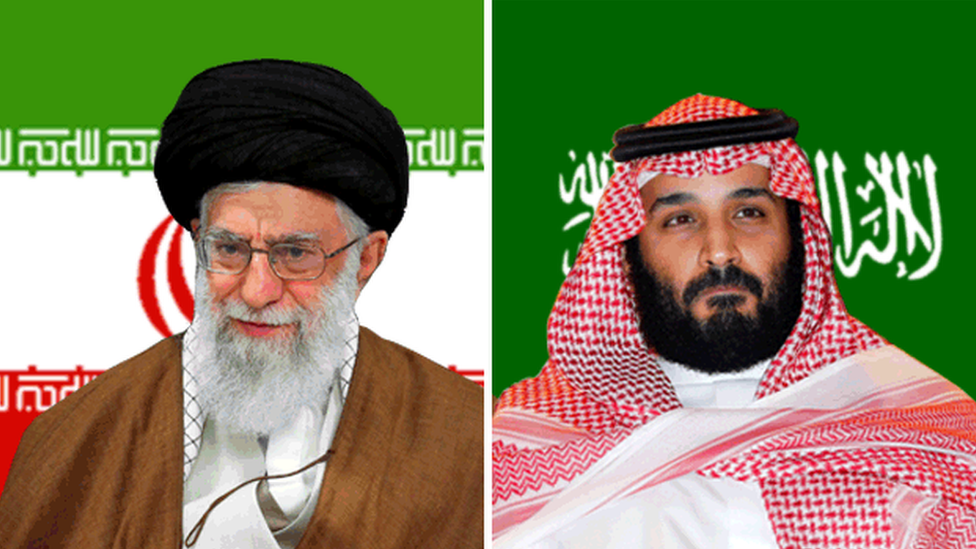Once again, Pakistan has failed to place its rhetoric on Kashmir among its “key allies” after Saudi Arabia and Iran refused permission to Pakistan’s missions in their country for holding public events to observe 27 October as a Black Day.
Islamabad has been observing the day of Jammu and Kashmir’s accession to India as Black Day after 1947.
Pakistan’s failed attempt at capturing the entire Jammu and Kashmir with the attack by tribals from Khyber Pakhtunkhwa had resulted in the Maharaja of Kashmir reaching out to India and seeking its military help in 1947. The attack, in which the invaders had reached Baramulla, was turned into the first war between India and Pakistan.
US Warns Its Citizens Of An Imminent Suicide Drone Attack On Riyadh, Saudi Arabia
The Islamic country has been observing Black Day on 27 October every year to mark the takeover of Jammu & Kashmir by India in 1947 on that day.
A report in Hindustan Times has said that Pakistan’s embassy in Iran had proposed holding an event at Tehran University to observe Black Day but to Islamabad’s surprise, Tehran refused the permission to hold the event. Later, the embassy conducted a webinar, as it had in August during the one-year anniversary of the abrogation of Article 370.
Pakistan had made a similar attempt in Saudi Arabia, but was reportedly told not to hold the event and restrict it to the consulate in Riyadh and keep any activities ‘low-key.’ Experts believe that Pakistan’s growing ties with Turkey are a factor in Saudi Arabia and Iran’s changing behaviour towards Islamabad.
Ever since the abrogation of Article 370 in August 2019, which stripped Jammu and Kashmir of its special status under the Indian constitution, Pakistan has been making relentless efforts to bring the attention of international players to the matter.
Prime Minister Imran Khan has repeatedly accused the Bharatiya Janata Party-led government in India of genocide in Kashmir and discriminating against them.
However, Pakistan’s efforts have failed to see the light of the day even with China’s support, which had raised the matter in United Nations Security Council in August again. Reportedly, all the countries in the council termed the issue of Jammu and Kashmir as a bilateral matter between India and Pakistan, which doesn’t require international intervention.

Islamabad’s keenness to take up Jammu and Kashmir as a matter of Islamic importance has resulted in its deteriorating ties with Saudi Arabia as well.
Pakistan was constantly requesting Saudi Arabia to convene a meeting on Kashmir at the 57-member council of Organisation of Islamic Cooperation (OIC) but Riyadh continued to refuse.
The bilateral ties received a blow when Pakistan’s Foreign Affairs Minister Shah Mehmood Qureshi slammed Saudi Arabia for not organizing a meeting to discuss Kashmir and threatened to do the same on its own.
Riyadh reverted to Pakistan’s threat with the demand for the repayment of a loan of $1 billion, which was part of a $ 6.2 billion package given to Islamabad in November 2018. Saudi Arabia also conveyed to the Imran Khan government that fresh loans or oil supply will no longer be given to Pakistan.
Saudi Arabia has been the leader of the Islamic world but Turkey has been vehemently fighting to snatch the leadership role. Pakistan, which has long shared deep political, cultural, historical and economic ties with Saudi Arabia, is now changing its stance amid the changing geopolitical scenarios.
In December 2019, Saudi Arabia had raised concerns over the Malaysian Prime Minister’s statement that the Muslim countries at the Kuala Lumpur Summit would form a new platform to replace the Organisation of Islamic Cooperation (OIC) which “had failed to deliver the goods on issues faced by the Muslims across the world.”
India’s Role
Another factor for Saudi Arabia and Iran refraining from supporting Pakistan’s rhetoric on Kashmir could be India’s influence in the region. The strengthening relations between Riyadh and New Delhi are visible with heavy investments by Saudi Arabia in India.
Under its vision 2030, Riyadh has termed India as its strategic partner. India’s influence in the Gulf region was starkly visible when India was invited to the Foreign Ministers’ meeting of the Organisation of Islamic Cooperation (OIC) States in Abu Dhabi in 2019.
After deteriorated relations with Saudi Arabia, Pakistan had turned to Iran to build a stronger ally in the Islamic world. “We have good relations with the Islamic Republic of Iran as compared to past and they need to be further strengthened,” said Pakistan Prime Minister Imran Khan had said.
Pakistan also supported Iran by calling out restrictions imposed by the US. However, India’s good ties with Iran may have overshadowed Pakistan’s efforts to cozy up to the Shia-dominated country.
In spite of the $400 billion deal between Iran and China, India has maintained that its relations with Tehran “stand on their own footing and are independent of its relations with third countries”.
Indian External Affairs Minister S Jaishankar and Defence Minister Rajnath Singh had visited Iran in September. While the details of the meeting were not revealed, the ministry had said that the two countries reiterated maintaining strong “bilateral ties”.




